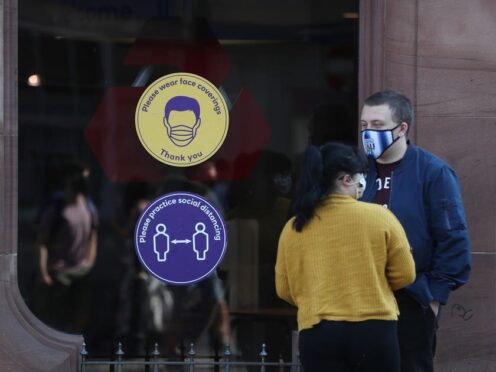The chief medical officer for Wales wrote the word “omnishambles” in his notebook to express his frustration over information coming from UK level “very late”, leaving Welsh officials “on the back foot” during the pandemic, an inquiry has heard.
Sir Frank Atherton wrote the word in the middle of a spider diagram, the UK Covid-19 Inquiry was told on Monday.
He said: “This represents a degree of frustration I think I had which is that sometimes information came from UK level into Wales very late and left us on the back foot on some issues.”
Looking at his notebook entry, he said: “So if I read down that list, it seemed odd to me that at some point, the virus was relatively contained at this point, but we were lifting restrictions, but other restrictions were being put in place including face coverings, for example.
“Why were we doing that? Why was Scotland moving more on face coverings at a time when we were relaxing other things?
“So it was a sense of frustration, I think, that there were things happening, that information was not being properly shared between policy leads in the different countries.”
Sir Frank was asked by Tom Poole KC, lead counsel for the inquiry, if giving different advice on face masks to the other three nations in June 2020 weakened public messaging, and he replied “it probably did”.
He added: “And when I look back at all the time and energy that was spent in Wales thinking about face coverings, I do wonder whether it would have been a better decision just to simply align.”
Asked if he had his time again, would he have mandated wearing face masks at the same time as the UK Government did in England, Sir Frank said: “I think I probably would, with the caveat that I suspect it would have been subject to legal challenge because there wasn’t very good evidence to support it.”
Another note from Sir Frank’s notebook, from December 21 2021, was shown to the inquiry which said: “PROBLEM. I’ve given clear advice that L4 restrictions are needed. Ministers stuck on financial implications, can afford L2 and not L4.”
It was put to him that this entry was his view that level four restrictions were needed, but the financial implications meant a political decision was made that the country could not afford to move to level four. He said he could not remember but “that’s what it reads like to me”.
Covid was managed for too long as a health issue “rather than a cross-government issue”, and should have been treated as such “once we started to see pictures in Italy of hospitals really running into stress”, he told the inquiry.
Sir Frank agreed that the Scottish Government’s decision on March 12 2020 to ban mass gatherings so emergency services were not displaced would have been a pragmatic approach, but officials were following the advice of the Scientific Advisory Group for Emergencies (Sage).
He also said “most Governments should have been consulted” before the UK national lockdown on March 23, but they agreed with the advice.
He added that he did not believe a national lockdown could have been avoided had different actions been taken in the months beforehand.
The hearing in Cardiff was told that Sir Frank wrote in his statement to the inquiry that the pandemic put “an unprecedented level of pressure on the chief medical officer private office, and the wider health protection team”.
He told the inquiry there was a lack of administrative support in the first months of the pandemic, and he “lost control of emails towards the end of January”, but there was a “gradual evolution of support during the pandemic”.
More support was provided in May 2020, the inquiry heard, but Sir Frank agreed that it would have been helpful to have it earlier.
A lack of minutes or formal notes from meetings attended by Sir Frank during this early period was a result of a lack of administrative support, the inquiry heard.
Meanwhile, Dr Rob Orford, chief scientific adviser for health, in his evidence to the inquiry, said scientific papers suggest it would have been better to go into lockdown a week earlier than the UK did.
